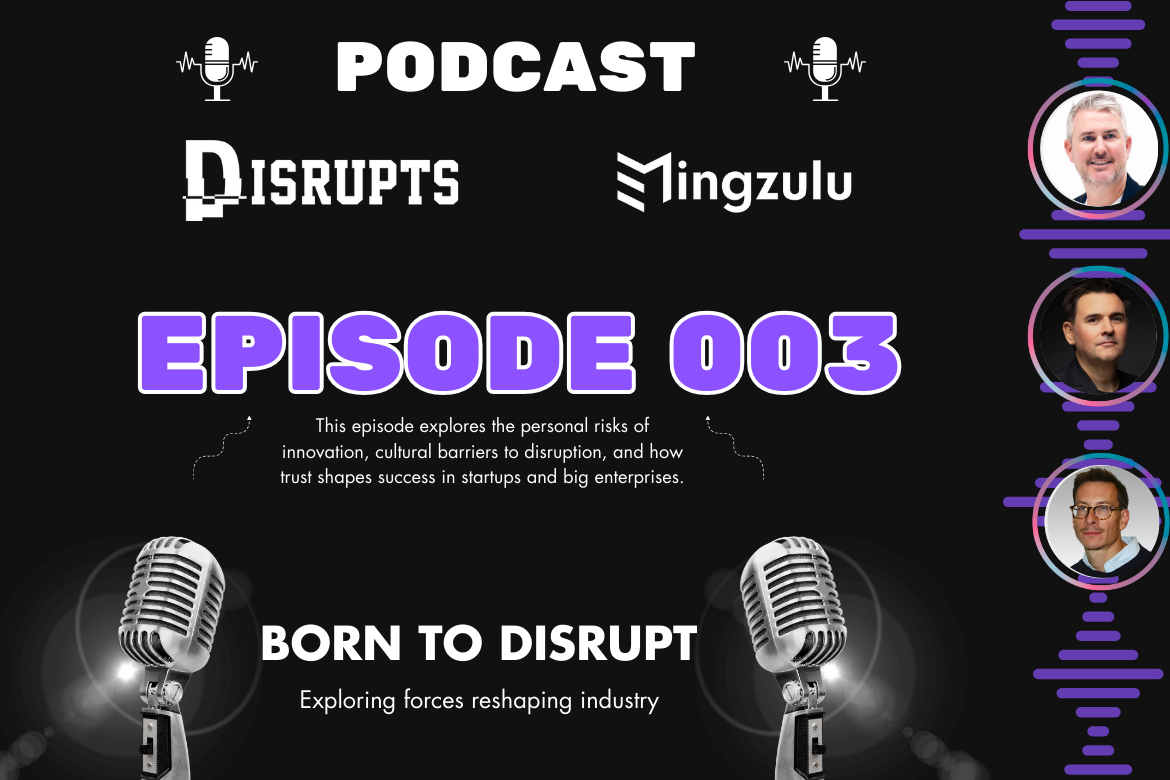Podcast Summary: Born to Disrupt – Featuring Bill Ashlock
In this episode of Born to Disrupt, hosts Grant Niven, Simon Hardie, and Mark welcome Bill Ashlock, a seasoned financial services leader, tech innovator, and mentor. The discussion centres on innovation, disruption, and the crucial role of people and culture in shaping these processes. Ashlock shares insights from his diverse career, highlighting the challenges of innovation in both corporate and startup environments.
The Personal Nature of Innovation
Ashlock argues that innovation is deeply personal, often misunderstood as purely technological. He stresses that behind every decision lies an individual's fears, uncertainties, and risk appetite. Many corporate leaders, he suggests, hesitate to adopt disruptive changes not because they doubt the technology, but because of the personal risks involved.
He recounts a defining moment from his early career at Electronic Data Systems (EDS), where he was encouraged to innovate but later discovered that his bold changes nearly cost him his job. However, his willingness to challenge the norm earned him respect and eventually mentorship. This experience shaped his career, teaching him the value of taking calculated risks and prioritising customer needs over internal resistance.
Cultural Barriers to Innovation
A major theme in the discussion is the cultural obstacles that prevent organisations from successfully innovating. Ashlock notes that while many businesses claim to encourage risk-taking and experimentation, they often fail to support those who experience setbacks. He points out that in many companies, failures are punished rather than treated as learning opportunities, leading decision-makers to opt for safe, predictable choices rather than transformative innovation.
The Middle East, particularly the Emirates and Gulf region, is highlighted as a rapidly evolving market with ambitious innovation goals. However, Ashlock suggests that while investment in disruptive ventures is growing, a true risk-taking culture has yet to take hold. In many cases, failure is still seen as a professional liability rather than a step towards progress.
Lessons from Corporate and Startup Environments
Ashlock has worked extensively in both large corporate settings and entrepreneurial ventures, giving him a unique perspective on how different organisations approach disruption. He advises large enterprises to resist the temptation to force innovation into existing structures. Instead, they should create separate, autonomous teams to experiment and develop new ideas free from corporate constraints.
He expresses scepticism towards traditional "innovation labs", which are often detached from real business needs. Instead, he recommends that established companies should hire experienced innovators, empower them with resources, and allow them to build independently.
For startups, Ashlock stresses the importance of networking and securing the right investors. He acknowledges that, particularly in the Middle East, many investors lack the long-term patience needed to support disruptive businesses. He draws comparisons to companies like Amazon, which took years to turn a profit but had patient investors willing to play the long game.
The Role of Trust and Open Conversations
Another key takeaway from the discussion is the importance of trust and transparency in driving innovation. Ashlock highlights that many senior leaders lack a safe space to discuss their doubts and challenges. He believes that the fear of exposing vulnerabilities prevents leaders from making bold decisions and embracing change.
He advocates for coaching and mentorship, suggesting that organisations should foster an environment where leaders feel comfortable seeking advice. He recalls a time when Google rewarded an executive with a promotion despite a failed project, reinforcing the idea that true innovation requires resilience and a culture that supports learning from failure.
Final Thoughts
The conversation concludes with Ashlock offering advice to both large organisations and startup founders. He urges corporations to invest in people-led innovation rather than relying on superficial strategies, and he encourages startups to focus on resilience, knowledge, and finding aligned investors.
Ultimately, the episode underscores that innovation is not just about technology—it is about culture, trust, and the courage to take risks. Organisations that truly embrace these principles stand the best chance of driving meaningful disruption.

